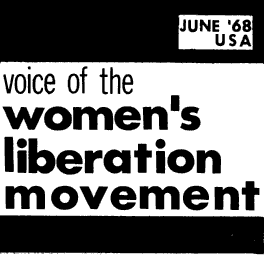|


by Fran Rominski
 Although there is a multitude of summer projects springing up around
the country, one of the most exciting seems to be Summer of Support.
Briefly, Summer of Support is a program aimed at establishing coffee
houses outside army bases in the nearby towns. The coffee houses are
seen as ''cultural antidotes or alternatives to the militaristic, drab,
occasionally violent army town environment. " The coffee houses
will be staffed by movement people but are not designed to organize
soldiers; rather, to provide soldiers with a resource institution through
which they might organize themselves, when they are ready.
Although there is a multitude of summer projects springing up around
the country, one of the most exciting seems to be Summer of Support.
Briefly, Summer of Support is a program aimed at establishing coffee
houses outside army bases in the nearby towns. The coffee houses are
seen as ''cultural antidotes or alternatives to the militaristic, drab,
occasionally violent army town environment. " The coffee houses
will be staffed by movement people but are not designed to organize
soldiers; rather, to provide soldiers with a resource institution through
which they might organize themselves, when they are ready.
 However, the coffee house idea presents some frightful possibilities
for women. From the inception of the idea it has been considered important
to have women staffing the coffee houses. The reason stated is that
guys will open lip more easily to women, who would be warm and sympathetic
listeners. (The reason deduced by many women is that they would be valuable
attractions. ) The prospectus on the program lists women as one of the
commodities to be brought along for the celebration of the G. I 's return
home- -". . . those who have successfully served the soldiers'
interests
However, the coffee house idea presents some frightful possibilities
for women. From the inception of the idea it has been considered important
to have women staffing the coffee houses. The reason stated is that
guys will open lip more easily to women, who would be warm and sympathetic
listeners. (The reason deduced by many women is that they would be valuable
attractions. ) The prospectus on the program lists women as one of the
commodities to be brought along for the celebration of the G. I 's return
home- -". . . those who have successfully served the soldiers'
interests
(cont. on p. 2)
|
|

by Mary Nelson
(Mary Nelson recently returned from a three-week visit to Cuba.)
 "What
difference has the revolution made in your life?" I was speaking
to a Cuban woman walking out to the fields where she does her voluntary
agricultural work. She folded her work gloves into the pocket of her
militia trousers and smiled. ''Before, the black people couldn't go
to the beaches, but now we can go wherever we want. The second change
is that, before, women couldn't do anything, we didn't have any right.
Now men and women work together; we are all revolutionary companeros. "What
difference has the revolution made in your life?" I was speaking
to a Cuban woman walking out to the fields where she does her voluntary
agricultural work. She folded her work gloves into the pocket of her
militia trousers and smiled. ''Before, the black people couldn't go
to the beaches, but now we can go wherever we want. The second change
is that, before, women couldn't do anything, we didn't have any right.
Now men and women work together; we are all revolutionary companeros.
 One
afternoon in Havana I had a long, chat with a young woman. She is a
buyer for chemicals for one of the ministries, is active in the Women's
Federation, and helps support a family of her own. "We have heard
a lot about the New Man Cuba is creating, " I said. "Who is
the New Woman?" One
afternoon in Havana I had a long, chat with a young woman. She is a
buyer for chemicals for one of the ministries, is active in the Women's
Federation, and helps support a family of her own. "We have heard
a lot about the New Man Cuba is creating, " I said. "Who is
the New Woman?"
 "Like
the New Man, she develops her abilities so that she can contribute as
much as possible to the collective effort. The New Woman is a fully
productive companera." "Like
the New Man, she develops her abilities so that she can contribute as
much as possible to the collective effort. The New Woman is a fully
productive companera."
 These
two conversations reveal some of the changes the revolution has brought
in the lives of Cuban women. These
two conversations reveal some of the changes the revolution has brought
in the lives of Cuban women.
 Before
the revolution in 1959, few Cuban women were employed. The rural labor
force worked for wages, and very few had land for subsistence farming.
Women could not work in the fields or factories because the level of
unemployment was chronically at a crisis level, even for men. So there
was little a woman could (cont. on p. 3) Before
the revolution in 1959, few Cuban women were employed. The rural labor
force worked for wages, and very few had land for subsistence farming.
Women could not work in the fields or factories because the level of
unemployment was chronically at a crisis level, even for men. So there
was little a woman could (cont. on p. 3)

|

 Return
to main Voice of the Women's Liberation Movement Page
Return
to main Voice of the Women's Liberation Movement Page

